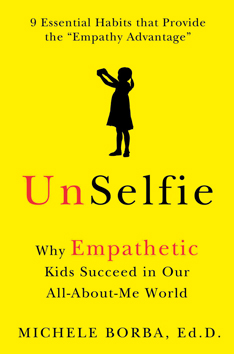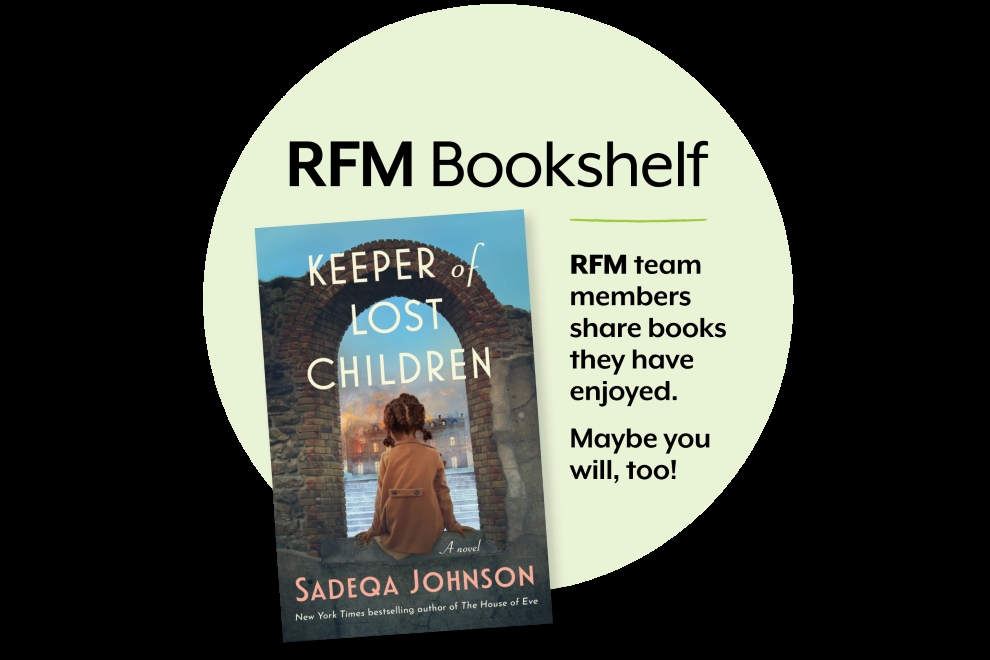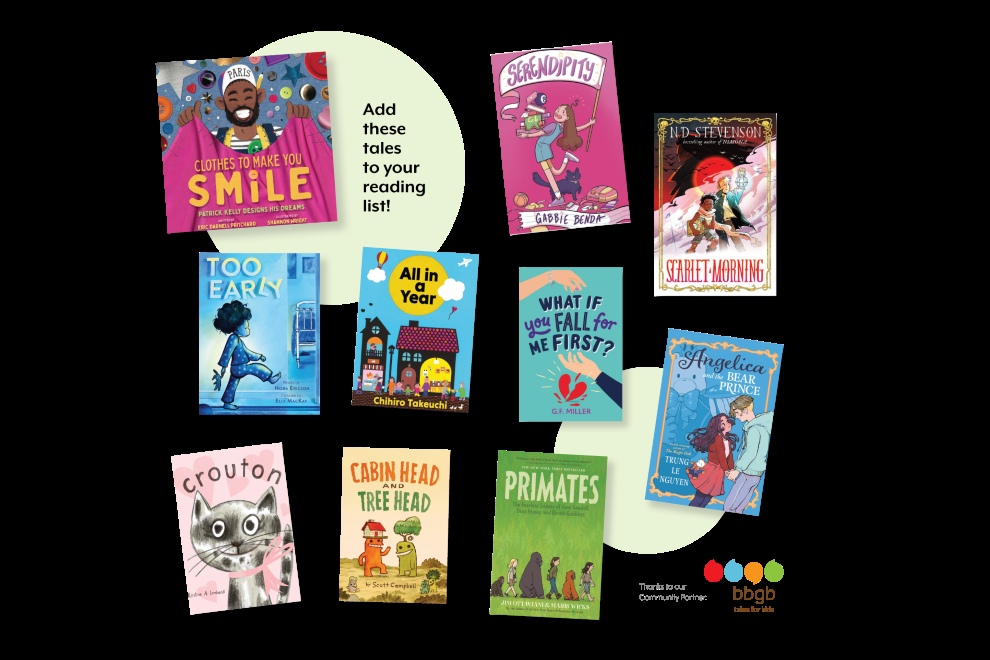Sick of selfies? I am. That’s why this month I decided to review UnSelfie by Michele Borba, Ed.D.. An educational psychologist, she argues it’s empathetic kids who will succeed in our all-about-me world. In UnSelfie, Borba provides a reader-friendly framework for parents that demonstrates how to shift the focus from me to we.
According to Borba, what kids really need to be happy and successful is empathy, a trait that allows us to feel with others. Contrary to popular beliefs, Borba claims it isn’t a “soft” skill and it can be taught. This is good news when you consider current trends. Borba reports, “Teens are now 40 percent lower in empathy levels than three decades ago, and in the same period, narcissism has increased 58 percent.”
This is in large part because of what Borba calls the Selfie Syndrome. It’s a condition she defines as “all about self-promotion, personal branding, and self-interest at the exclusion of other’s feelings, needs, and concerns.” This “self-absorbed craze” not only hurts kids academically but also socially. Borba argues, “While we may be producing a smart, self-assured generation of young people, today’s kids are also the most self-centered, saddest, and stressed on record.”
Why is feeling for others such a challenge? Borba claims, “Misguided parenting styles and a plugged-in me-centered culture are shortchanging kids from opportunities for real-time face connections and learning emotional literacy.” The statistics Borba shares regarding our technological age are staggering. (If they don’t make you put down your smart phone, I don’t know what will.) As a result, Borba believes families must create “sacred unplugged times.” These boundaries will not only help your kids but you, too, since according to Borba, “One national survey found that 62 percent of school-age kids said that their parents are too distracted when they try to talk to them.”
Luckily, after Borba builds a persuasive case that our children lose out by leading less empathetic lives, she provides lots of thoughtful suggestions for improving children’s moral identity. For example, I loved how she pointed out the problem with parents snapping too many pictures of kids’ “academic successes, athletic prowess, or cute looks.” It sends the message that these are the things we value. Instead, Borba suggests parents capture caring moments, too, so kids know they matter.
Borba also encourages parents to use books to help children understand the needs of others. When my kids were little, I read aloud some of the favorites she mentioned, like Paper Bag Princess by Robert Munsch. Now, I read aloud chapter books they might not otherwise pick up, like Turtle in Paradise. While most parents say they value reading, the majority stop reading aloud to their kids as soon as they can read to themselves. This not only has implications for young reader academically, but it also fails to capitalize on the belief that reading makes kids kinder.
According to Borba, “Today’s kids are growing up in a hyper-connected world and admit they’d rather text than talk. But empathy is driven by face-to-face connection.” Although we implemented the “What was one kind thing you did today?” question into our evening conversations, the reality is it’s going to take a whole lot more than a shared family dinner to help my children learn how to navigate relationships. So I’ll be using this great book to help me combat the Selfie Syndrome. If you’re also interested in planting the seeds of empathy, check out UnSelfie: Why Empathetic Kids Succeed in Our All-About-Me World by Michelle Borba.
Follow @ParentbytheBook on Twitter for updates on blog posts or like Parenting by the Book on Facebook.




